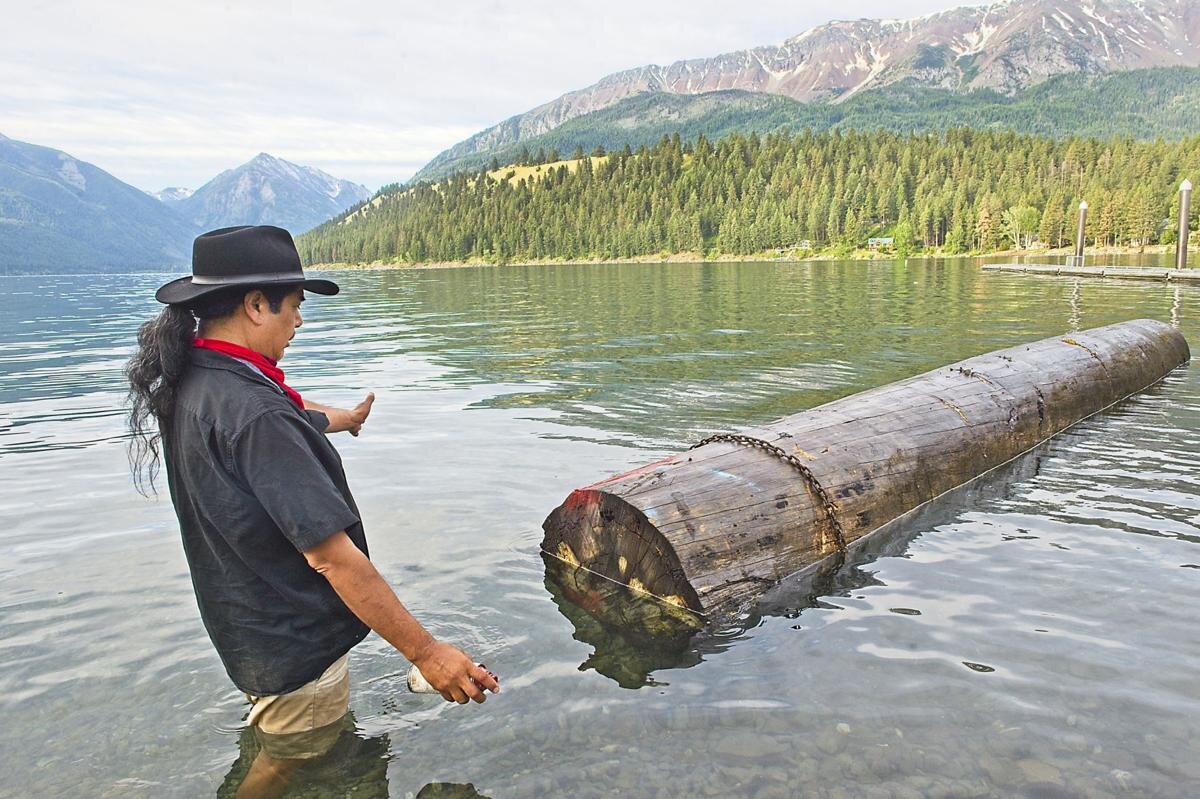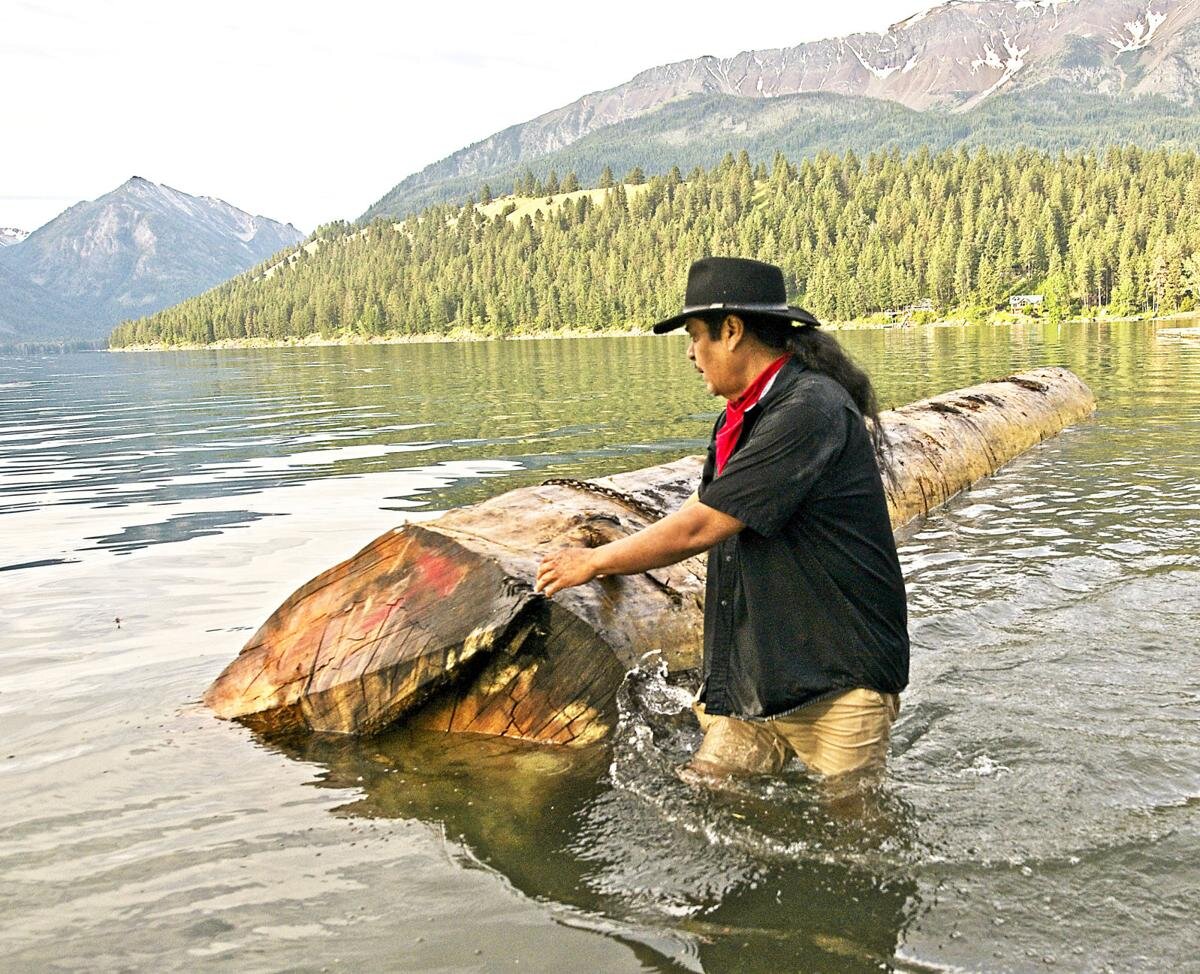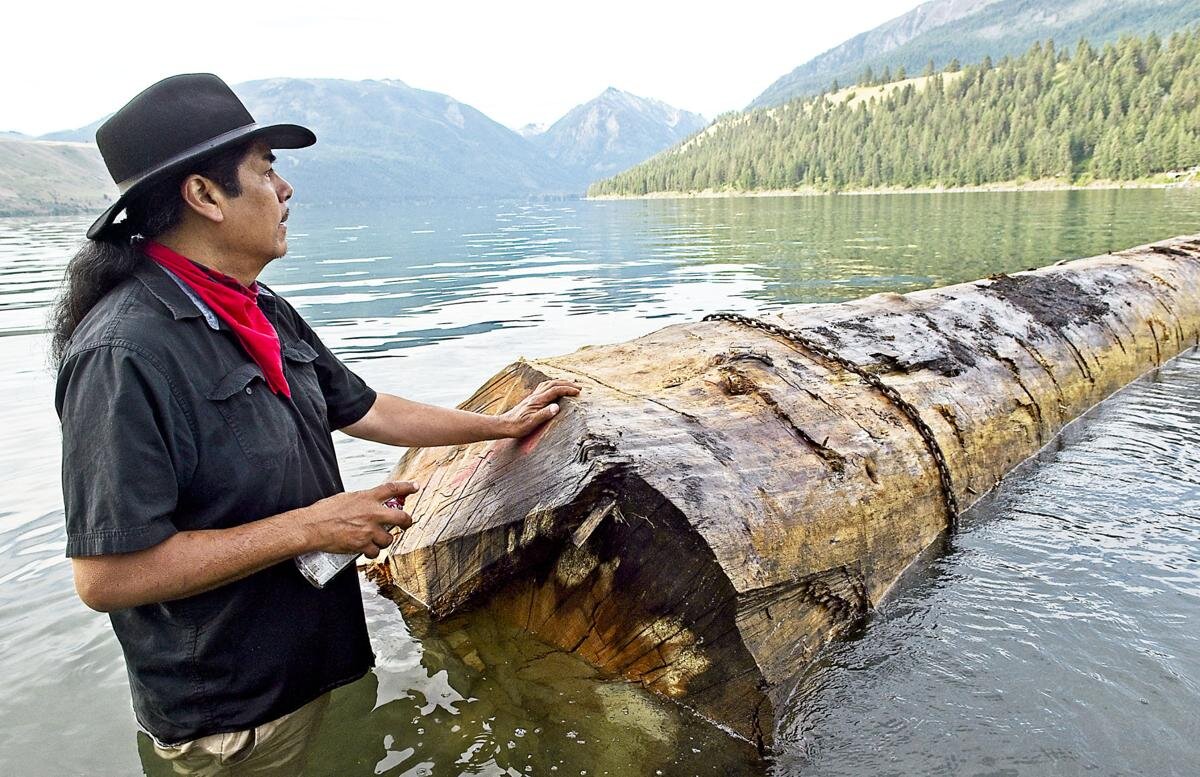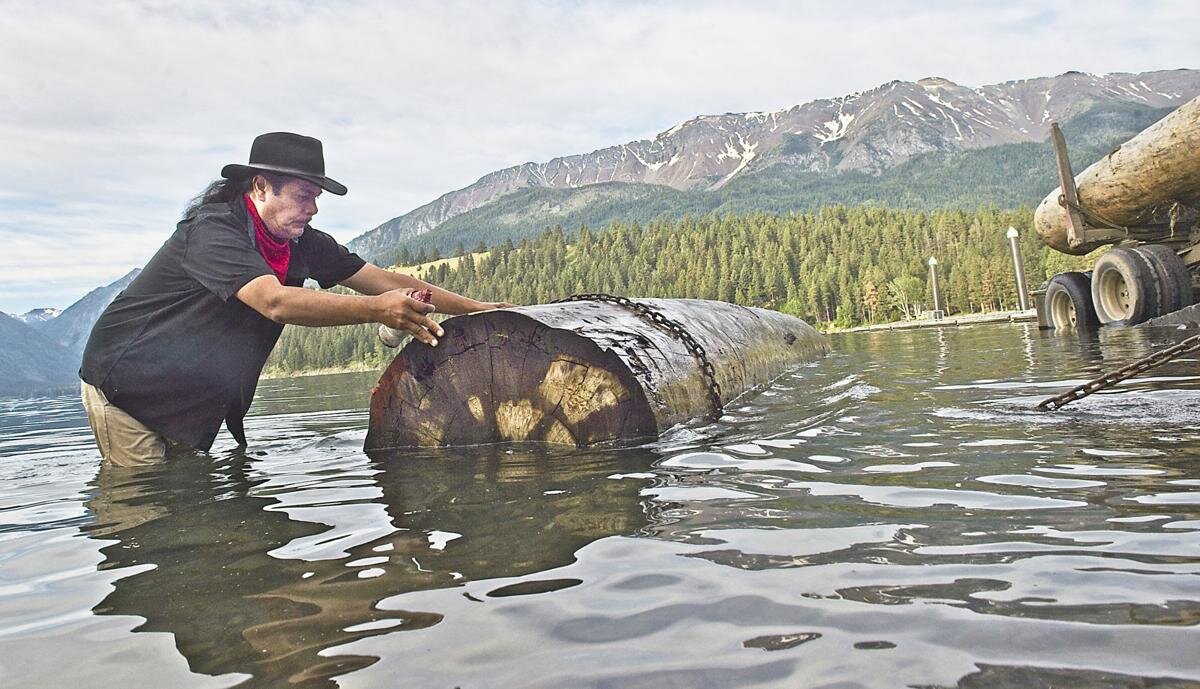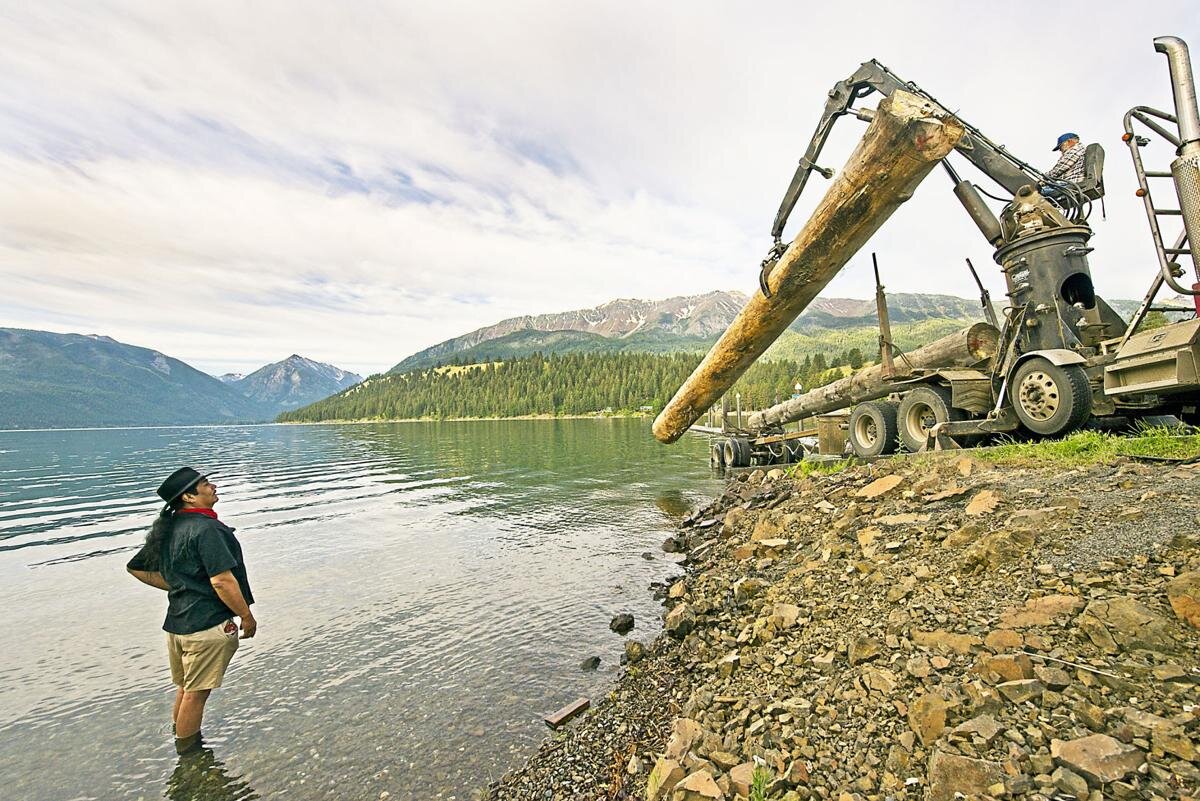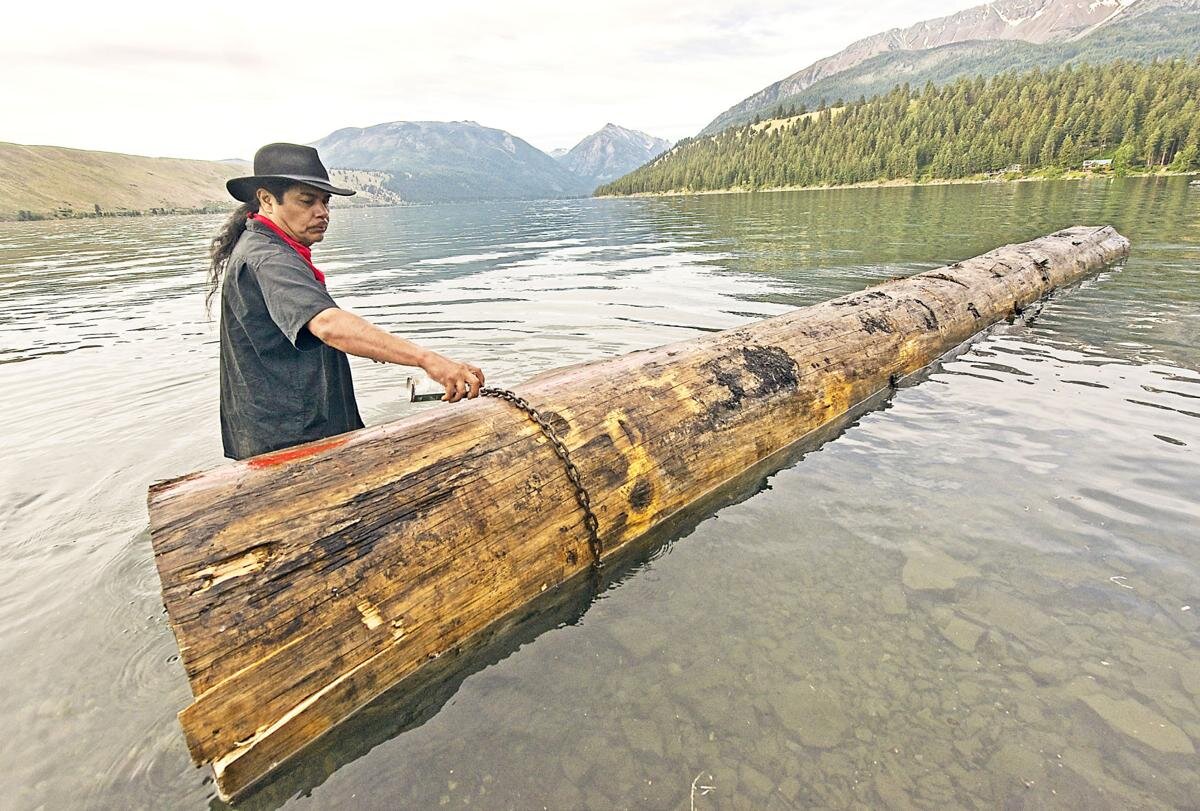By Ellen Morris Bishop for the Wallowa County Chieftain, July 15, 2020
WALLOWA LAKE — A self-loader log truck placed three impossibly huge Pondeosa pine logs into Wallowa Lake early on Monday, July 13.
But these old-growth pines are headed for a higher purpose than lumber. They are going to become Wallowa Band Nez Perce dugout canoes, the traditional, local indigenous watercraft since time immemorial.
The logs were cut near Ollokot Campground by JZ Lumber because the U.S. Forest Service considered the dead snags to be “hazard trees.”
The first step in making a dugout canoe is determining which side of the log should be “up” and which side of the log naturally will be the bottom. The only way to do this, said Wallowa Band elder Alan Pinkham, is to float the logs in the water and see “which side the lake and the log decide should be the bottom of the canoe.”
The logs were hauled by truck operator Tim Gilbert. Gilbert backed his log truck down the county boat ramp, and used the self-loader to gingerly swing each log into the lake. The largest, 4 feet in diameter and an estimated 14,000 pounds, lifted the front end of Gilbert’s log truck off the ground as he plucked the log up with the loader and swung it into the water.
Pinkham’s son, Alan Pinkham, Jr., tested each of the three logs by slowly turning them in the water and then waiting to see how they would stabilize. He marked the top of the log with orange paint, and Gilbert reached back into the lake to pluck each log from the water and place it back onto the truck.
The whole operation took about an hour.
Gilbert hauled the mammoth logs back to JZ lumber, which donated them to the project along with the space for building the new canoes. Alan Pinkham, Jr. will begin work on the first canoe there later this week.
Two years ago, he constructed a smaller, 16-foot dugout at the Josephy Center that was launched on Wallowa Lake. But these logs will make much bigger, 30-foot canoes.
Pinkham’s goal is to have a canoe or two completed for the 2022 or 2023 Indigenous Water Journey, an annual gathering of native canoes on the Columbia River. In 2022, the festival will be centered around Celilo on the Columbia River. The project is sponsored by the Josephy Center, which funded some of Pinkham’s expenses as well as Gilbert’s transport of the logs.
